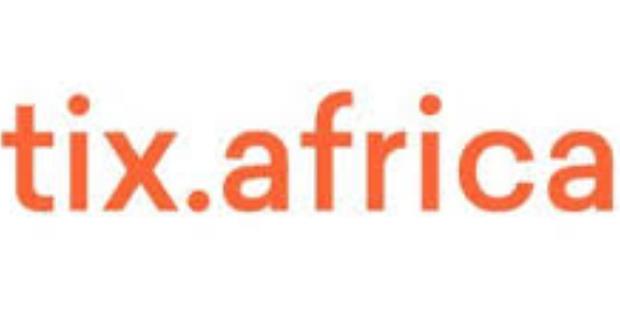News
Tix Africa Closes Six-figure Pre Seed Round to Scale Events Products

Tix.Africa, a self-service ticketing platform for event creators in Nigeria, has secured a six-figure pre seed funding. The funding round was led by HoaQ, with participation from a number of private equity investors, and will enable Tix Africa to build its technology to scale its events apps. The startup also plans to expand operations to Ghana and East Africa in the coming months.

Tix Africa launched in 2019 to solve the challenges of ticketing live events in Lagos. The founders have successfully run the Eat Drink Lagos Food Festival since 2015 and as a result of encountering challenges of accurately collating guest details, payments and ticketing the events, built Tix to plug the gap in user data readily available to event organizers under the company’s original name of Festival Coins.
The platform currently makes it easy for organizers to create and monetize live or virtual events, enabling the creation of a customizable event page, secure payment collection via Paystack, and giving guests a seamless way to book and attend live events.
The new capital raised will be deployed to expand Tix Africa’s development team, revamping its organizer mobile app, developing additional products, and launching Tix Pro – a paid version of Tix offered on a recurring subscription basis. The company also plans to scale operations to Kenya, Ghana, Uganda, and Egypt in the second half of 2021.
Tix Africa CEO, Folayemi Agusto, said of the pre seed capital raised: “Nigeria has some of the best events you can attend – no one does private gatherings or public events and festivals like us. We want to continue providing the best tech-enabled solution for event organisers and attendees so that each event is a seamless, accessible experience from the moment tickets are booked, right through to arriving and gaining entry to the actual event.
“The new capital will enable us to scale quicker and to integrate the currently separate products and services we offer, including an app offering event attendees a marketplace where they can buy, trade and resell tickets securely. We’re really excited to expand our platform to other markets across the continent, potentially enabling users to attend events they may otherwise not have known about.”
The hospitality and event sector in Sub Saharan Africa is worth tens of billions of dollars and was one of the sectors significantly impacted by COVID-19 lockdown measures. Since lockdown restrictions began to ease, Tix Africa has also been working on offering virtual events integrated with Zoom.
The company’s revenue grew 90% year-on-year in H1 2021 and the team is working on developing Tix Africa’s own native virtual meeting space for its users. As part of its new development, Tix will also enable users to store balances in a digital wallet and transfer this balance between events for payments on the company’s rfid wristbands.
Joe Kinvi, Managing Partner at HoaQ added: “We are delighted to back a truly enterprising and innovative team. Folayemi and Nosa deeply understand this space and have built Tix.Africa to cater for the markets they will be serving. We are confident that their vision to adapt their offering and expand their tech team and product offerings will fuel their continued growth and development in the coming years.”
News
LG Launches “Radio Optimism” Campaign to Spread “Life’s Good” Through Music

LG Electronics has launched a new brand campaign, “Radio Optimism,” designed to help strengthen meaningful human connections and spread optimism through shared musical experiences.

This initiative aligns with LG’s brand promise, “Life’s Good,” and addresses the growing challenge of forming genuine relationships in a technology-driven world.
The Radio Optimism campaign seeks to counteract the disconnection often felt in an era dominated by superficial interactions, such as likes and comments on social media. By harnessing the power of music, LG aims to foster deeper bonds among individuals, promoting a more fulfilling life.
“As technology advances, meaningful human connections become increasingly vital to enrich our lives. LG continues its commitment to bringing optimism into customers’ daily lives, staying true to our enduring brand promise of ‘Life’s Good,’” said Kim Hyo-eun, head of LG’s Brand Management Division.
This campaign reinforces LG’s commitment to creating enriching experiences in digital spaces where today’s consumers spend significant time. Building on this mission, LG has continuously engaged with younger audiences through participatory campaigns that bring the Life’s Good philosophy to life.
Last year’s “Optimism your feed” campaign leveraged social algorithms to foster positivity on social media. This new initiative specifically seeks to address the paradoxical disconnection in an era of hyper-connectivity.
“One of the most reliable predictors of happiness is having deep and meaningful relationships,” said Jean M. Twenge, Professor of Psychology at San Diego State University. “Yet today, many people are spending more time online and less time connecting in person. Social media in particular tends to create shallow relationships rather than the deep connections people need.
“It’s common for people to have hundreds of followers but no one to talk to in real life if they need support. We need to build more meaningful connections with those around us. That might turn around the pronounced decline in happiness that’s occurred over the last decade.”
A new global study* from LG on social connection reveals that 68 percent of people find it harder to make real friends, and a third reported having one or fewer meaningful connections in the past month, with 8 percent experiencing none at all.
Inspired by traditional radio’s unique way of connecting people through music and storytelling, the Radio Optimism campaign transforms this concept into an interactive platform where participants can create and send personalized songs to their loved ones.
Users can easily create new songs using AI-powered tools, which are thoroughly trained on a curated music dataset. These tools interpret user prompts to produce unique musical pieces and generate matching album art, providing an engaging and personalized experience. Once generated, these songs can be sent to recipients to deepen their connection and made available for others to discover worldwide.
According to the survey, nearly 9 in 10 respondents believe that meaningful connections lead to a more optimistic outlook on life. By providing a platform for individuals to express their feelings, this campaign aims to foster deeper connections and help individuals enrich their lives while spreading optimism in their own ways.
The campaign website is available in English and Spanish, with plans to support additional languages in the coming months to enable broader participation. The official website can be found at RadioOptimism.lg.com.
News
Nigeria’s Electricity Output Climbs 10.92% in Q1 2025, Boosted by Thermal Plants

Nigeria’s electricity generation rose by 10.92% in the first quarter of 2025, driven by improved operational capacity and better availability of thermal and hydropower plants supplying the national grid.

This is according to the latest report from the Nigerian Electricity Regulatory Commission (NERC) for Q1 2025.
Total energy generated stood at 10,304.47 gigawatt-hours (GWh), up from 9,289.95 GWh recorded in the previous quarter. The increase highlights stronger performance across multiple power plants, supported by improved grid dispatch conditions.
NERC noted that average hourly generation on the grid also grew by 13.39%, rising to 4,770.59 megawatt-hours per hour (MWh/h) from 4,207.41 MWh/h in Q4 2024—an increase of 563.18 MWh/h.
“The hourly generation and the total generation increased by 13.39% and 10.92% respectively in Q1 2025 compared to Q4 2024. This rise is linked to an increase in the cumulative available generation capacity of grid-connected plants,” the report stated.
A total of 19 power plants boosted their output during the quarter, contributing significantly to the overall rise in generation.
Thermal power plants were the main drivers of growth. Out of the 23 thermal plants connected to the grid, 16 recorded higher average hourly output compared to the previous quarter.
Top contributors included Delta_1, which added 157.58 MWh/h, followed by Geregu_2 (71.95 MWh/h), Egbin_1 (68.20 MWh/h), and Afam_2 (68.03 MWh/h).
Hydropower plants also supported the growth, though at a smaller scale. The five grid-connected hydro stations posted a combined increase of 54.93 MWh/h, marking a 4% improvement. Zungeru_1 led with a 23.55% rise, while Shiroro_1 and Kainji_1 grew by 12.21% and 4.80% respectively.
This first-quarter improvement reflects ongoing efforts to stabilize power supply through better plant maintenance, enhanced grid management, and more consistent dispatch across regions.
However, challenges such as fuel supply to plants, equipment reliability, and high operating costs continue to limit the full potential of Nigeria’s power generation capacity.
News
DBI, Miva Open University Partner to Advance Digital Innovation, Education

Digital Bridge Institute (DBI) and Miva Open University, Abuja, have signed a Memorandum of Understanding (MoU) to jointly promote digital technology and academic excellence in computer science and innovation.

Mr. David Daser, president/CEO, DBI, and Professor Tayo Arulogun, vice chancellor, Miva Open University.
DBI, a Federal Government-owned ICT training institute with headquarters in Abuja and campuses across Nigeria’s six geo-political zones, hosted the signing ceremony at its headquarters.
The MoU marks a significant step in formalizing and strengthening the existing relationship between the two institutions.
Signing on behalf of their institutions were
Speaking during the event, Mr. Daser praised Professor Arulogun’s leadership and commitment to academic development, which he said made the partnership possible. He emphasized that unlike many MoUs that remain inactive, this collaboration is set to deliver tangible results.
“We value this partnership and are confident it will meaningfully contribute to Nigeria’s education sector. DBI is fully prepared to implement the agreement and drive an impact across our campuses in Enugu, Abuja, Kano, Lagos, Asaba, and Yola,” Daser said.
He added that the collaboration would strengthen DBI’s National Innovation Diploma (NID) program and other initiatives through shared resources and new opportunities.
Professor Arulogun, in his remarks, highlighted the need for greater collaboration among Nigerian universities, criticizing the prevalent “do-it-alone syndrome.”
“Many institutions prefer to operate in silos, but collaboration is key. Pooling resources and working together will enhance capacity and academic output,” he stated. “With this partnership, we are ready to hit the ground running from student exchange to joint innovation projects like hackathons.”
He noted that hackathons provide platforms for discovering hidden talents and fostering innovation, and Miva is eager to integrate such activities into its academic programs.
Mr. Emeka Nzeih, head of Learning and Development, DBI, outlined the partnership’s key focus areas: student internships, real-world project collaborations, joint research in fields like AI, robotics, and cybersecurity, and shared access to DBI’s ICT labs and equipment for Miva’s students and faculty.
According to Nzeih, the initiative aims to enhance practical learning, foster innovation, and build capacity through collaborative training, research, and mentorship.

 Telecom2 days ago
Telecom2 days agoMTN Nigeria Debuts Game-Changing CPaaS Platform at NextNow Forum

 Telecom3 days ago
Telecom3 days agoNCC Approves MTN, 9Mobile Roaming Collaboration Deal

 E-Financial2 days ago
E-Financial2 days agoNAICOM Issues New Licenses to SanlamAllianz Life, General Insurance

 News2 days ago
News2 days agoAMCON Confirms ₦100Bn Sale of Ibadan DisCo Amid Legal Disputes

 E-Financial2 days ago
E-Financial2 days agoGTCO to Become First Nigerian Bank to List on London Stock Exchange

 E-Business2 days ago
E-Business2 days agoDomain of Deception as Attackers Deploy Spyware Under Guise of Legal Threats

 E-Financial3 days ago
E-Financial3 days agoWorld Bank Approves Extra $65m for Nigeria’s SPESSE

 E-Financial3 days ago
E-Financial3 days agoEcobank Taps Google Cloud to Deepen Financial Inclusion
















